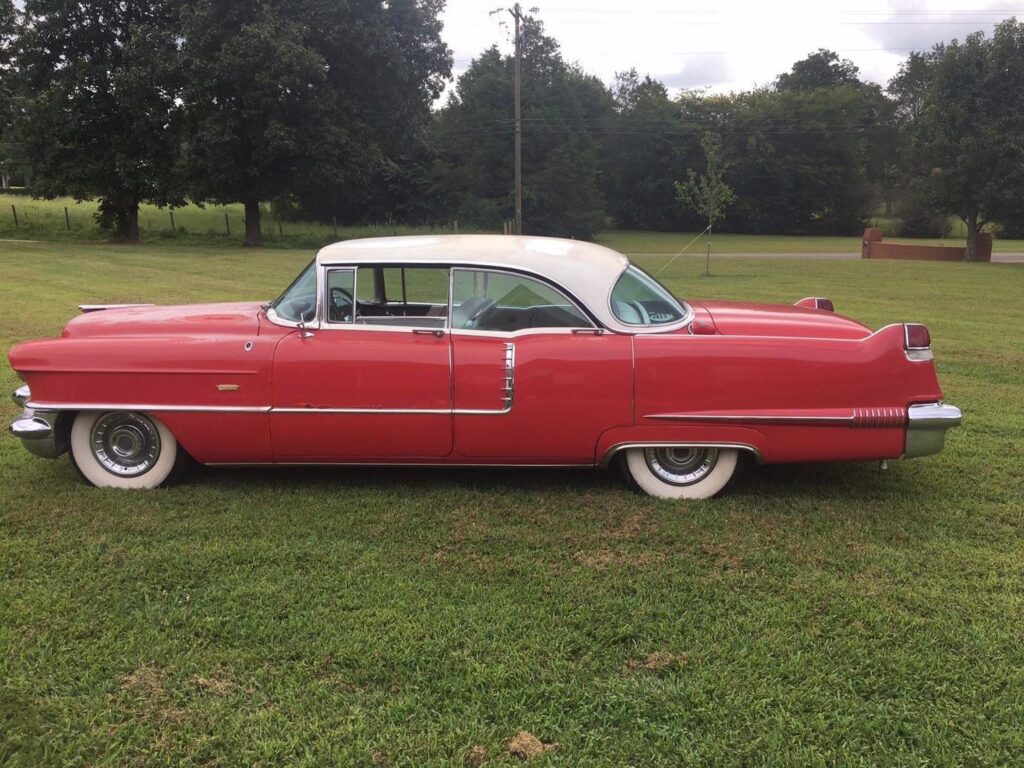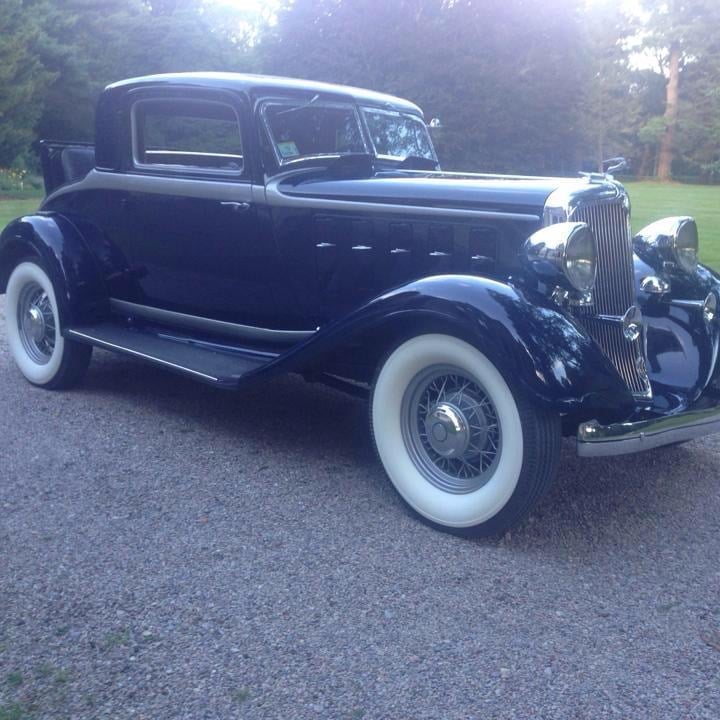Photo Credit: Eric Anderson
E-commerce and online auction platforms, with their analytics and tech features, might seem like the polar opposite of the vintage vibe, but they can be invaluable for buying, selling, and researching. So many collectors look to online sites like eBay and WorthPoint to purchase items, sell what they have picked, and examine the history and pricing of items. For the most part, it works well, but one market segment is more complex than shopping for that perfect piece of Wedgewood or uranium glass, and that segment is vintage automobiles.
Shopping for a vehicle can be stressful enough just looking for a solid car in good condition and at a fair price. When it’s a vintage car, the stakes are way higher. Vintage cars need special care, parts are sometimes hard to source, and “kicking the tires” is difficult online. Still, some industry experts are pointing out the growth in the online marketplace for “collector cars.” The term is vital to car buffs because, with autos, not every collector car is old. Some are collectible because production was limited, or other factors make a model hard to find or wildly popular.
What the Numbers Say
The total sales online for vintage cars in 2016 was $42.45M, which is impressive, but by the end of 2023, collector car sales were at $1.65B. That’s a big leap for a product and demographic that loves to go old school. Those numbers have continued to rise, and according to the analytics site Statista, online auto sales of classic cars hit $2B at the end of 2024. To compare, Monterey Car Week, a premiere collector car live auction event with dozens of automobile auction houses in attendance, had somewhat disappointing results, and this is the conundrum of online vintage car sales.
Buying a piece of Jadeite Fire King pottery or a vintage scarf online is very different from looking for your next car to add to your vintage garage. Many auction platforms for antiques and collectibles aren’t suited to automobiles, so sites dedicated solely to auto sales have sprung up.
Some auction houses often broadcast live, in-person car auctions online simultaneously, and many collectors will watch sales, with no intention to bid, as part of their research. Still, even in televised live auctions, many buyers bid by phone and online, which is contributing to the growth of a niche in vintage auto sales of buyers and sellers that complete transactions entirely online. This shift toward online sales isn’t a dominating trend just yet, but collectors know that it presents unique challenges to buyers and sellers.

Connecting Collectors
WorthPoint spoke with vintage car collector Eric Anderson of Marblehead, MA, about his experience with vintage sales. Eric has owned several collector cars, including a 1959 Edsel and a 1930 Nash Advanced Twin-Six Model 480. His latest car, dubbed his “mid-life Chrysler,” is a 1933 Chrysler Royal 8 Rumble Seat Coupe. The vehicle belonged to a friend who wanted Eric to care for it after he passed away. Eric has seen a lot of antique and classic cars and was happy to answer some questions about the market and how to connect with other car collectors.
WorthPoint: Thank you, Eric, for talking to us about your cars. Can you tell us what’s in your garage right now?
Anderson: You’re welcome. I would love to talk about my passion for vintage cars. Right now, Lydia, a 1933 Chrysler, occupies my garage and is currently getting glammed up for the spring and summer motoring season. She has a rumble seat and is perfect for a summer evening ride for ice cream or a leisurely drive around the local beach towns. I’m lucky to be part of a local group of car collectors that share information, but there are also online sources.
WP: What are you seeing in collector car sales in online marketplaces and auction platforms?
EA: Auctions help reach a worldwide market, especially when televised and people are phoning in bids. Some of these very high-priced cars are easier to research ownership and history of maintenance—high-end sellers wish to keep their good name, and sometimes local car sales are a crap shoot. However, it’s always a gamble—sales are final, no guarantees. There is no chance to kick the tires, test drive, etc., so there is some risk when a buyer hasn’t seen a car in person. The connection factor is relevant, too; you never know what you might learn just by chatting with a buyer or a seller.
WP: What would you advise collectors who are fans of vintage cars but new to purchasing and researching sales?
EA: If you have a chance to ask questions and talk to sellers, it’s best to just buy it from them privately. Vintage car auctions from some big names (Mecum, etc.) are the opposite of many private sales between buyers and sellers. They’re fun to watch, but buyers have to beware of costs. The auction houses charge a hefty amount to BOTH seller and buyer; then there are interstate taxes and far-distance trailering (thousands in fees and insurance. ) High-end collector cars (aka: “trailer queens”) usually find homes this way. Still, low-end buyers spending 10k or less can lose money to a middleman, so it’s not super practical.
WP: So it sounds like there are collectors who drive and enjoy their vintage cars, but others may not?
EA: Yes, that does happen. Many high-end collectors will never drive the cars they own—they are investment properties to be held and traded. Many are flipped within days.
WP: What other trends do you see in online sales?
EA: Well, the markets differ regionally. We have a short season in New England because of the weather, but it’s year-round in warmer climates like the Southwest, California, and southern states like Florida. The communities of car collectors and the cultures of different areas are definitely part of the mix. MT Go, a part of the Discovery Channel and available on demand in some markets, is a good place to check out sales and how online auctions work. They televise live bidding, documentaries, and shows about many aspects of collector cars.

Driven to Collect
The markets for any kind of collectible, from sports cards to fine art, are always evolving. Before everyone was online, collector cars were bought and sold through advertising magazines, flyers, and barn auctions. Now, there are entire online communities for collectors to buy, sell, and learn from each other.
The WorthPoint Price Guide contains data on vintage car sales from our Industry Partners, and it’s a good place to start seeing where prices are with different models. WorthPoint CEO Will Seippel advises anyone considering purchasing a collector car to take it to an expert for inspection since vehicle accident and repair reports are not always available. Will says, “They only go back so far. You need to have a qualified person inspect a car in person if it is an old and valuable car. I did it when buying a Shelby.”
While online sales will likely continue to increase, car collectors are a passionate group that values “in real life” connections, so there will still be local car shows in mall parking lots and vintage car clubs. Car collecting holds a special place among many vintage fans, so it’s unlikely that the in-person part of that space will become irrelevant.
Brenda Kelley Kim lives in the Boston area. She is the author of Sink or Swim: Tales From the Deep End of Everywhere and writes a weekly syndicated column for The Marblehead Weekly News/Essex Media Group. When not writing or walking her snorty pug, Penny, she enjoys yard sales, flea markets, and badminton.
WorthPoint—Discover. Value. Preserve.
Credit: Source link






























